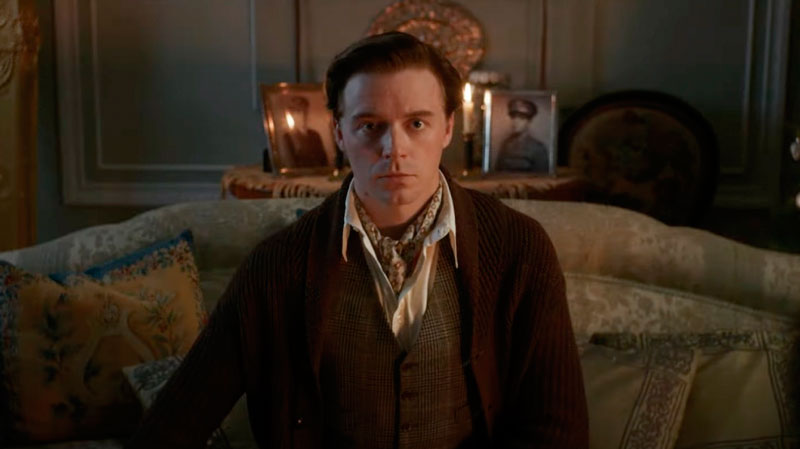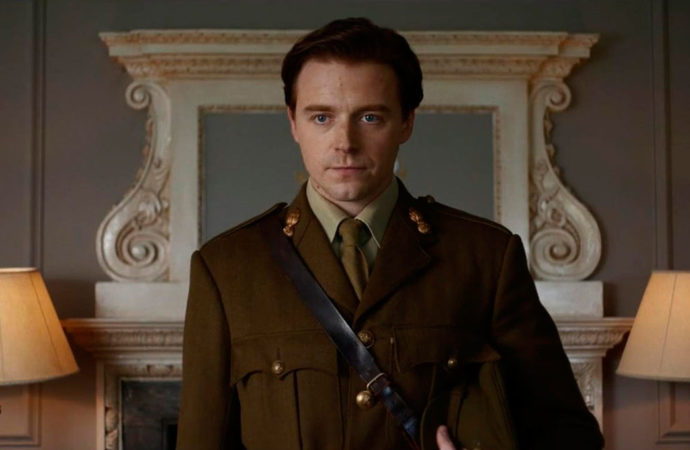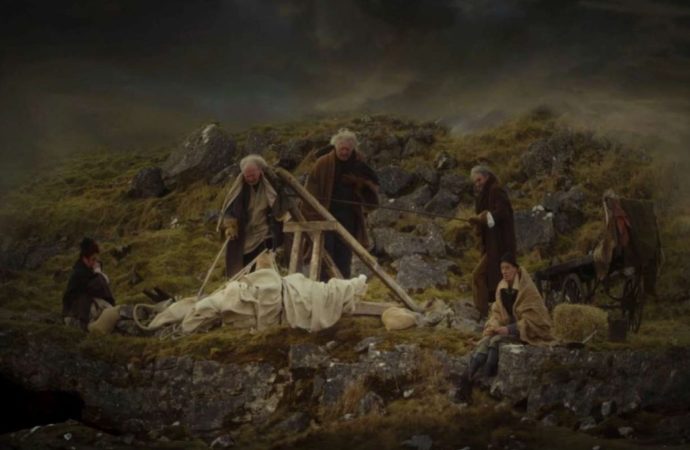Jack Lowden and Peter Capaldi play the British poet and pacifist Siegfried Sassoon as a young and old man in Benediction (Terence Davies, 2021), a bold biopic whose screenplay won an award at the last San Sebastian Festival. The life journey of the poet Sassoon (Mattfield, 1886-Heytesbury, 1967) was complex and deeply committed, confronting his government during World War I, but also the society of the time, for the vindication of his sexuality, in a life arc that finally led him to surrender to the Christian faith. Ellipses, archive images, and an unforgettable, heart-rending last shot alternate with the stylistic devices of a great master. Throughout the film, the episodes of the poet’s life, his sexual partners, intellectual friendships, and intense social life are portrayed faithfully and without stylization. The millions of war dead are as constant a presence in the film as the ballroom dancing, and both spheres are so well blended that Davis leaves us body shattered with a hugely effective mind pounding, such is the mastery with which he handles his screenplay cards.

Benediction, more than a film, is a 137′ experience, disguised as an innocent biopic, an immersion in a beautiful and piercing melancholy, which does not allow us to recreate either the pain or the beauty it conveys. The director of A Quiet Passion prefers to depict the man and his conflicts, rather than the poet and artist, even though his work pervades the film and we hear some of his poems in voice-over. Throughout Benediction, Sassoon will meet the singer Ivor Novello – in Gosford Park (Robert Altman, 2001), played by Jeremy Northam, he sang the same song: “And Her Mother Came, Too” -, he will frequent artists, intellectuals and choose Hester Gatty (Kate Phillips and Gemma Jones), as redemption. With all of them, the dialogue flows intensely and lightly at the same time, so that we wish we could pause to savor it all the better in a feast of irony and sarcasm, of biting humor.
The horror of war, social hypocrisy, post-traumatic stress and survivor’s guilt are shown through a perpetual conflict of opposites: war and poetry, homosexuality and heterosexuality, atheism and religiosity in a film of indelible impact in which the concept of failure hovers over every shot. Disappointment and lack of stature in the face of the expectations of society and the army —as representative of a self-interested notion of collective responsibility embodied in the fatherland—, as well as in the face of the family —represented by the poet’s mother and his own wife—, define Siegfried Sassoon as a defective being, maladjusted and in constant debt to the world in which he has had to live. His literary talent and spontaneity decline painfully in the recurring encounter with reality until the final defection of his own personality.
The recitations of poetry, the archive footage —which the director included due to lack of budget—, the time jumps throughout Sassoon’s life flow so naturally that we discover the creative vitality of veteran directors as an unyielding bastion of artistic independence, their ability to overwhelm us with emotion, to amaze us with their purely cinematic artifacts and, in this case, to convey their fierce pacifist plea, with one of the most moving endings in living memory.







No one has posted any comments yet. Be the first person!